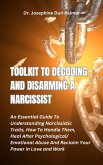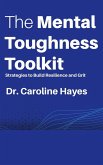Intriguing insights include neuroimaging studies showing how mindfulness reduces amygdala reactivity (the brain's alarm system) and research linking gut health to emotional resilience, revealing how diet impacts stress. The book also debunks the myth of one-size-fits-all solutions, emphasizing adaptable strategies like "micro-meditations" for hectic schedules or CBT exercises to reframe catastrophic thinking.
What sets Stress Toolkit apart is its interdisciplinary approach, weaving neuroscience, nutrition, and organizational psychology into a cohesive guide. Structured in three parts, it progresses from explaining stress physiology to hands-on techniques and personalized implementation plans. Each chapter combines clinical studies with relatable anecdotes-like using breathwork to lower cortisol or optimizing sleep hygiene-while "Toolkit Takeaways" summarize key steps.
The tone is empathetic and jargon-free, ideal for overwhelmed professionals or skeptics of quick fixes. Rather than promising to eliminate stress, the book reframes it as a manageable force, offering science-backed resilience strategies that readers can tailor to their lives.
Dieser Download kann aus rechtlichen Gründen nur mit Rechnungsadresse in A, B, BG, CY, CZ, D, DK, EW, E, FIN, F, GR, H, IRL, I, LT, L, LR, M, NL, PL, P, R, S, SLO, SK ausgeliefert werden.









